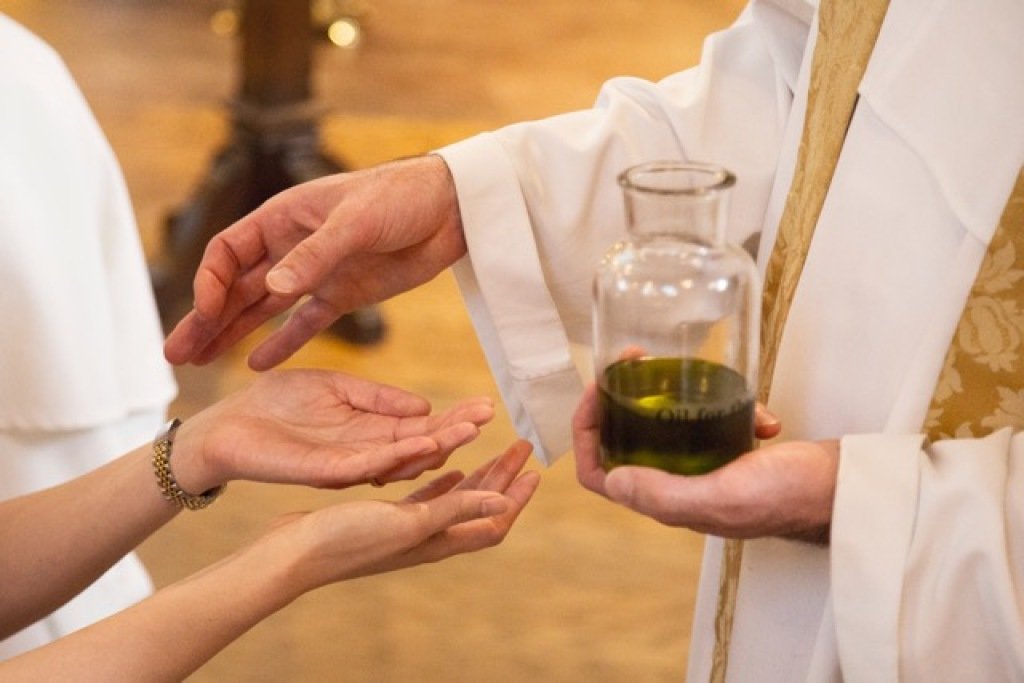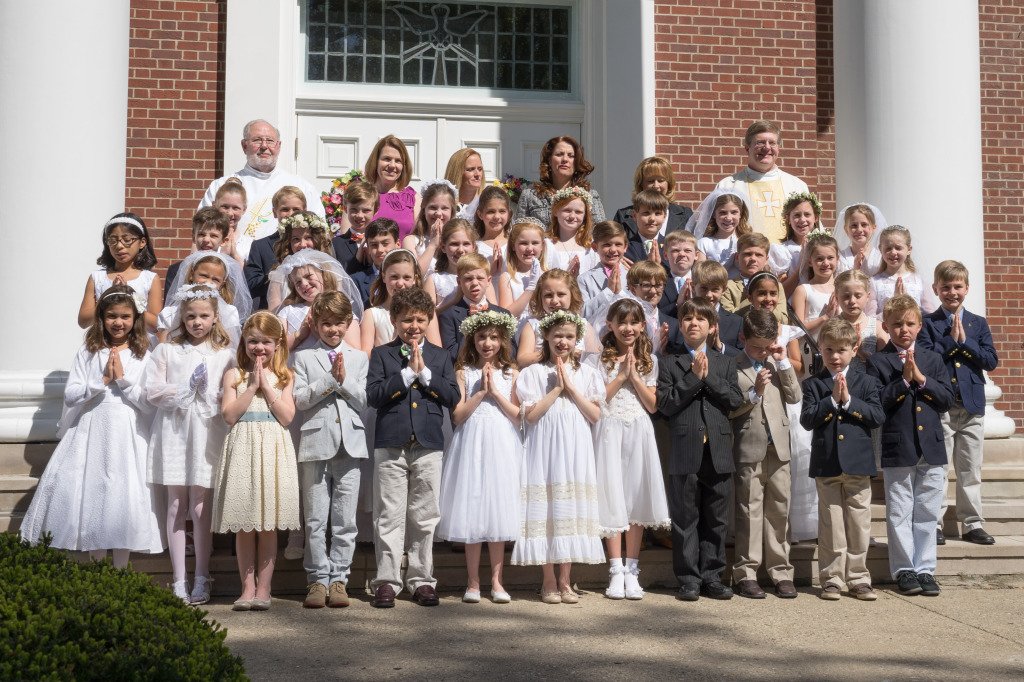
Eucharist
The Eucharist is “the source and summit of the Christian life (CCC 1324). It is the most important of the seven sacraments because, in it and in no other sacrament, we receive the very body and blood, soul and divinity of Jesus Christ. The Eucharist strengthens the Church and the individual.
Why The Eucharist?
Jesus summarized the reasons for receiving Communion when he said:
“Truly, truly, I say to you, unless you eat the flesh of the Son of man and drink his blood, you have no life in you; he who eats my flesh and drinks my blood has eternal life, and I will raise him up at the last day. For my flesh is real food, and my blood is real drink. He who eats my flesh and drinks my blood abides in me, and I in him. As the living Father sent me, and I live because of the Father, so he who eats me will live because of me. This is the bread which came down from heaven, not such as the fathers ate and died; he who eats this bread will live forever” (John 6:53–58).
In order for Catholics to receive Communion they must:
Be in a state of grace.
Have been to confession since your last mortal sin.
Believe in the doctrine of transubstantiation.
Fast for an hour prior to receiving Communion
not be under an ecclesiastical censure (excommunicated, either automatically or formally)
More About Eucharist
First Eucharist
First Eucharist is celebrated during the Easter season for those children who have attained 2ndgrade and have properly prepared to receive this Sacrament. First Penance must be celebrated prior to receiving First Eucharist. Children wishing to receive this Sacrament must be a practicing Catholic, enrolled and attending either a Catholic school or the parish Evening Religious Education program.
Eucharist and Other Christians
The guidelines for receiving Communion, published by the U.S. Conference of Catholic Bishops state, “We welcome our fellow Christians to this celebration of the Eucharist as our brothers and sisters. We pray that our common baptism and the action of the Holy Spirit in this Eucharist will draw us closer to one another and begin to dispel the sad divisions which separate us. We pray that these will lessen and finally disappear, in keeping with Christ’s prayer for us ‘that they may all be one’ (John 17:21).Because Catholics believe that the celebration of the Eucharist is a sign of the reality of the oneness of faith, life, and worship, members of those churches with whom we are not yet fully united are ordinarily not admitted to Communion. Eucharistic sharing in exceptional circumstances by other Christians requires permission according to the directives of the diocesan bishop and the provisions of canon law.”
Eucharist and Non-Christians
The U.S. bishops’ guidelines for receiving Communion state, “We also welcome to this celebration those who do not share our faith in Jesus Christ. While we cannot admit them to Communion, we ask them to offer their prayers for the peace and the unity of the human family. Because they have not received baptism, the gateway to the other sacraments, non-Christians cannot receive Communion. However, in emergency situations, they can be received into the Church via baptism, even if no priest is present, and an extraordinary minister of Holy Communion may bring them Communion as Viaticum.”

